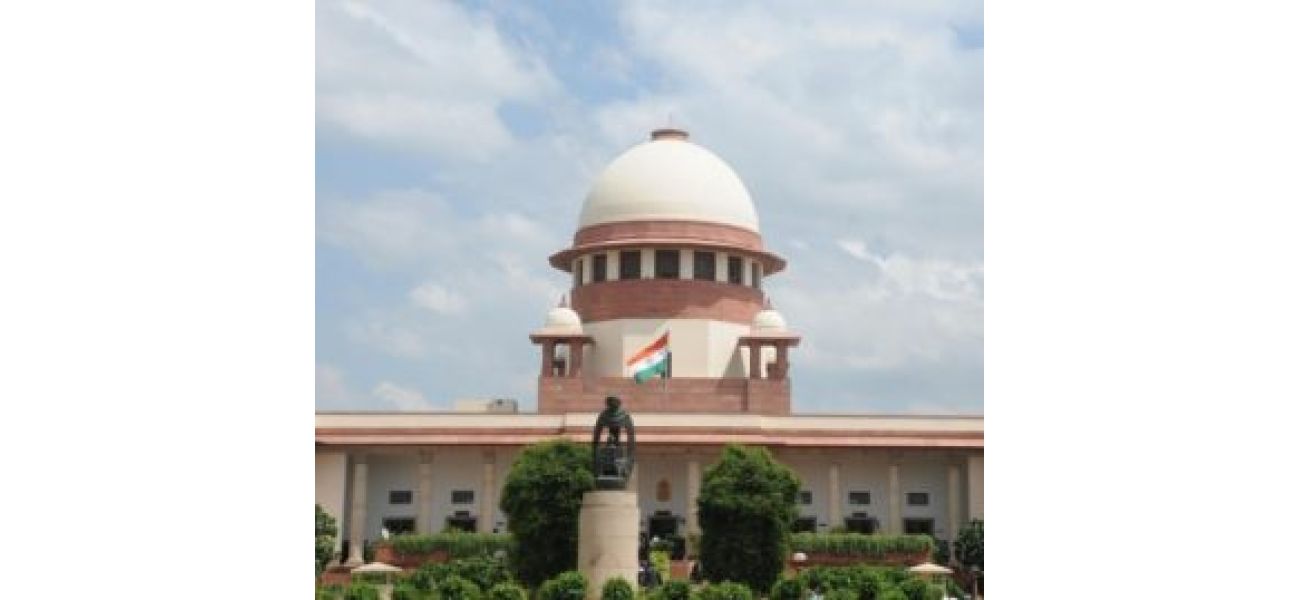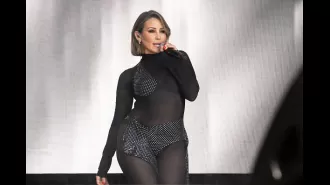The Supreme Court has postponed reviewing petitions against a law that removes the Chief Justice of India from the process of selecting Election Commissioners.
Supreme Court delays hearing on petitions challenging law that excludes CJI from appointing top officials of Election Commission.
February 19th 2025.

In a recent development, the Supreme Court of India has decided to adjourn the hearing on a series of petitions that challenge a law passed by Parliament. This law, which has been a topic of much debate, excludes the Chief Justice of India from the process of appointing top officials of the Election Commission. The bench, consisting of Justices Surya Kant and N. Kotiswar Singh, granted the request made by Solicitor General Tushar Mehta to postpone the proceedings. Mehta, who is the second highest law officer of the Centre, was currently occupied with the Constitution Bench, where the issue of courts modifying arbitral awards was being discussed.
On Monday, the Union government announced the appointment of Gyanesh Kumar, a 1988-batch Kerala cadre IAS officer, as the new Chief Election Commissioner. He will succeed Rajiv Kumar. In an earlier hearing, advocate Prashant Bhushan expressed his concern that the pleas against the Chief Election Commissioner and the other Election Commissioners Act, 2023 should be resolved promptly. He also emphasized the urgency of the matter, as CEC Rajiv Kumar's tenure was ending on February 18. Bhushan requested for a final hearing or an interim order to be passed. However, Solicitor General Mehta argued against an interim stay on the law, stating that the Union government had already prepared a response and the matter should be scheduled for a final hearing.
During the hearing on January 8, Bhushan pointed out that the incumbent CEC was set to retire on February 18 and a new Election Commissioner would need to be appointed. The question at hand was whether this appointment would be made according to the Constitution Bench's judgment or the new law. In March 2023, the Supreme Court had ruled that the President shall appoint top officials of the Election Commission based on the recommendations of a panel consisting of the Prime Minister, the Leader of the Opposition in the Lok Sabha, and the Chief Justice of India.
The apex court declared, "We declare that the appointment of the CEC and the other ECs shall be made on the recommendations made by a three-member Committee comprising the Prime Minister, LoP of the Lok Sabha and in case no LoP is available, the leader of the largest opposition party in the Lok Sabha in terms of numerical strength and the Chief Justice of India." The court clarified that these guidelines would remain in effect until Parliament made a law in accordance with Article 324 of the Constitution. Subsequently, the Parliament introduced a legislation that provided for the President to appoint the Chief Election Commissioner and other Election Commissioners based on the recommendation of a Selection Committee consisting of the Prime Minister, the Leader of the Opposition in the Lok Sabha, and a Union Cabinet Minister nominated by the Prime Minister.
In response to this, several Public Interest Litigations were filed before the Supreme Court, challenging the constitutional validity of the Chief Election Commissioner and other Election Commissioners Act, 2023. One of the pleas, filed by a lawyer from Noida, requested for the gazette notification issued by the Union government on December 28, 2023 to be set aside. It also urged for the Chief Justice of India to be included in the selection committee for the appointment of the CEC and ECs. Furthermore, it sought direction from the Union of India to implement a transparent and independent system of selection, constituting a neutral and independent selection committee for the appointment of the CEC and other ECs.
On Monday, the Union government announced the appointment of Gyanesh Kumar, a 1988-batch Kerala cadre IAS officer, as the new Chief Election Commissioner. He will succeed Rajiv Kumar. In an earlier hearing, advocate Prashant Bhushan expressed his concern that the pleas against the Chief Election Commissioner and the other Election Commissioners Act, 2023 should be resolved promptly. He also emphasized the urgency of the matter, as CEC Rajiv Kumar's tenure was ending on February 18. Bhushan requested for a final hearing or an interim order to be passed. However, Solicitor General Mehta argued against an interim stay on the law, stating that the Union government had already prepared a response and the matter should be scheduled for a final hearing.
During the hearing on January 8, Bhushan pointed out that the incumbent CEC was set to retire on February 18 and a new Election Commissioner would need to be appointed. The question at hand was whether this appointment would be made according to the Constitution Bench's judgment or the new law. In March 2023, the Supreme Court had ruled that the President shall appoint top officials of the Election Commission based on the recommendations of a panel consisting of the Prime Minister, the Leader of the Opposition in the Lok Sabha, and the Chief Justice of India.
The apex court declared, "We declare that the appointment of the CEC and the other ECs shall be made on the recommendations made by a three-member Committee comprising the Prime Minister, LoP of the Lok Sabha and in case no LoP is available, the leader of the largest opposition party in the Lok Sabha in terms of numerical strength and the Chief Justice of India." The court clarified that these guidelines would remain in effect until Parliament made a law in accordance with Article 324 of the Constitution. Subsequently, the Parliament introduced a legislation that provided for the President to appoint the Chief Election Commissioner and other Election Commissioners based on the recommendation of a Selection Committee consisting of the Prime Minister, the Leader of the Opposition in the Lok Sabha, and a Union Cabinet Minister nominated by the Prime Minister.
In response to this, several Public Interest Litigations were filed before the Supreme Court, challenging the constitutional validity of the Chief Election Commissioner and other Election Commissioners Act, 2023. One of the pleas, filed by a lawyer from Noida, requested for the gazette notification issued by the Union government on December 28, 2023 to be set aside. It also urged for the Chief Justice of India to be included in the selection committee for the appointment of the CEC and ECs. Furthermore, it sought direction from the Union of India to implement a transparent and independent system of selection, constituting a neutral and independent selection committee for the appointment of the CEC and other ECs.
[This article has been trending online recently and has been generated with AI. Your feed is customized.]
[Generative AI is experimental.]
0
0
Submit Comment





